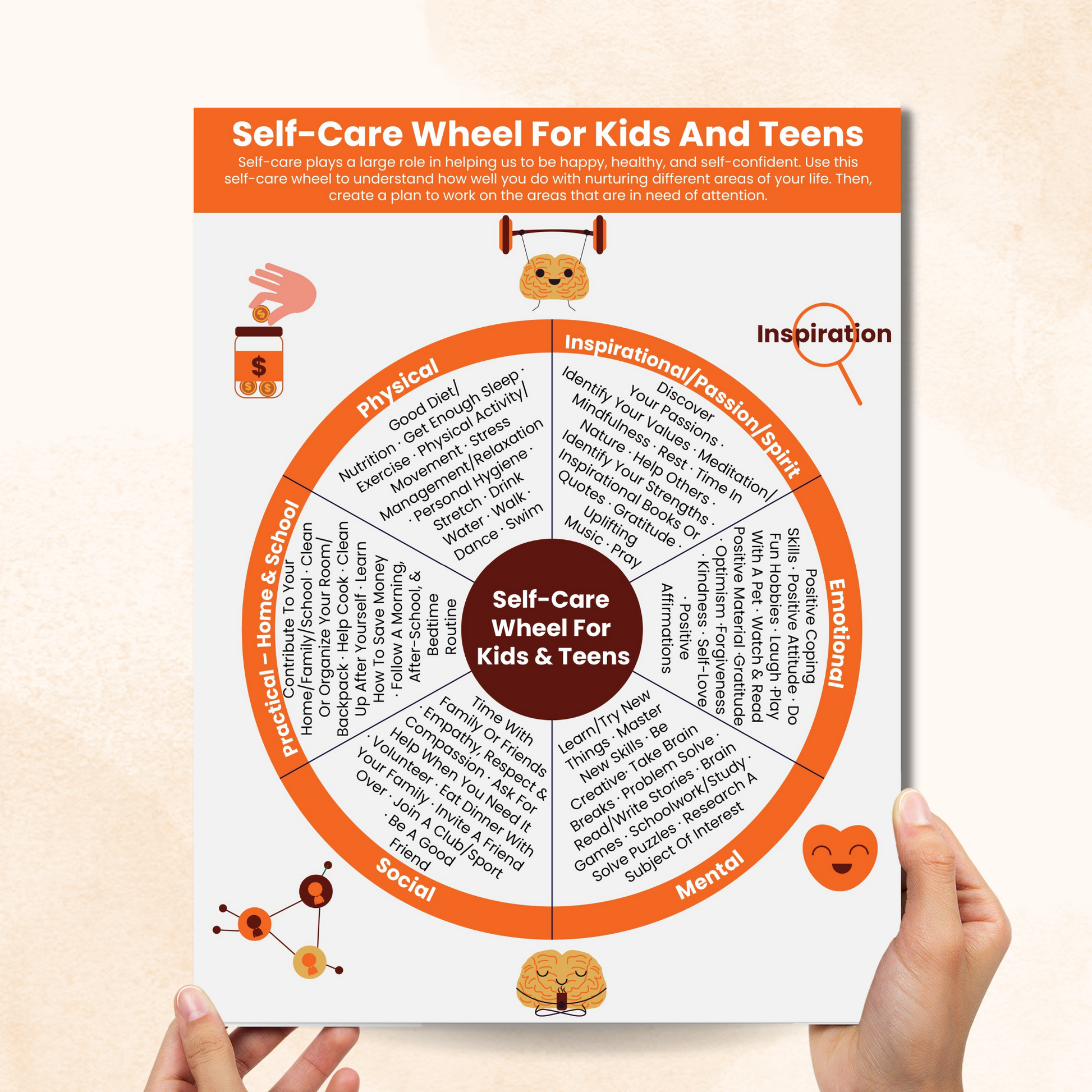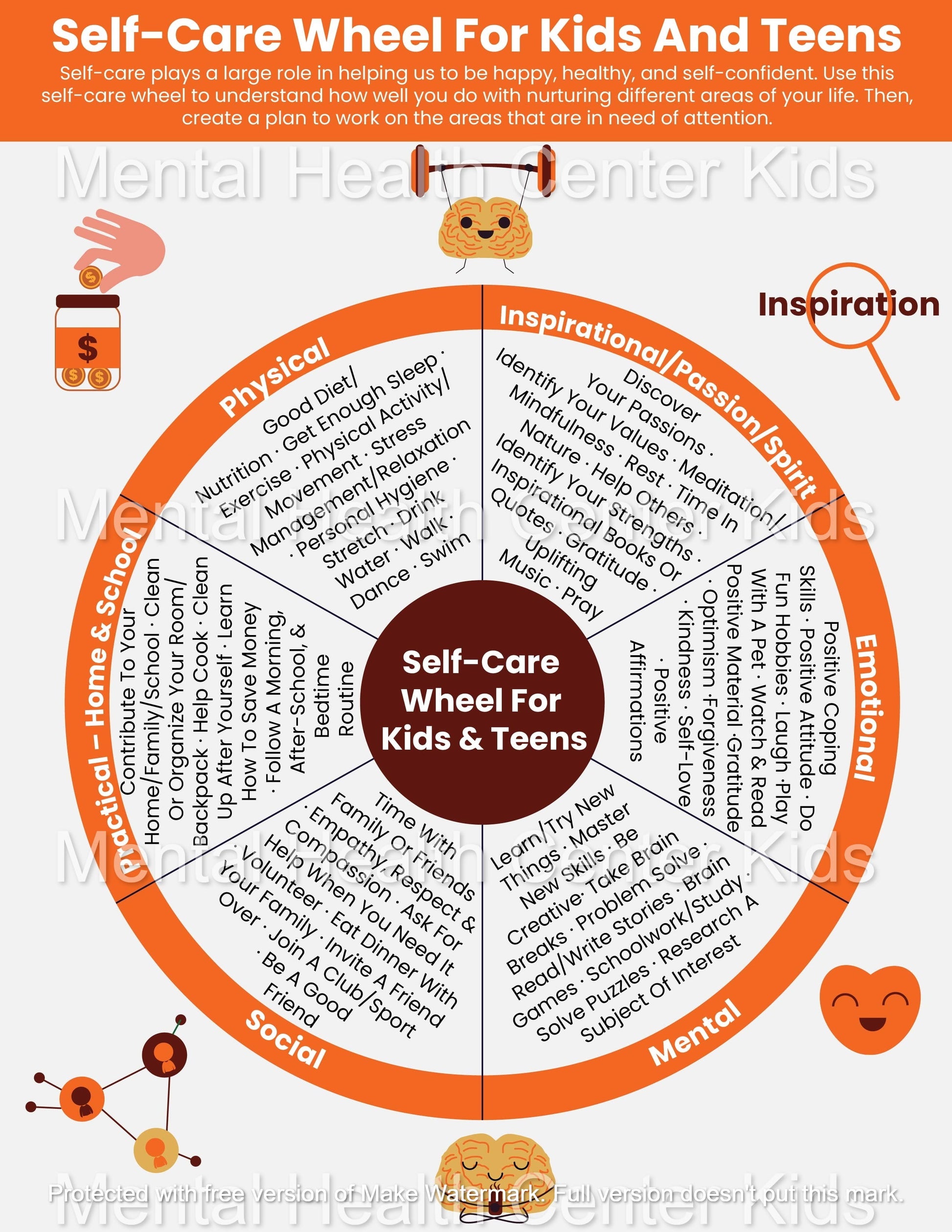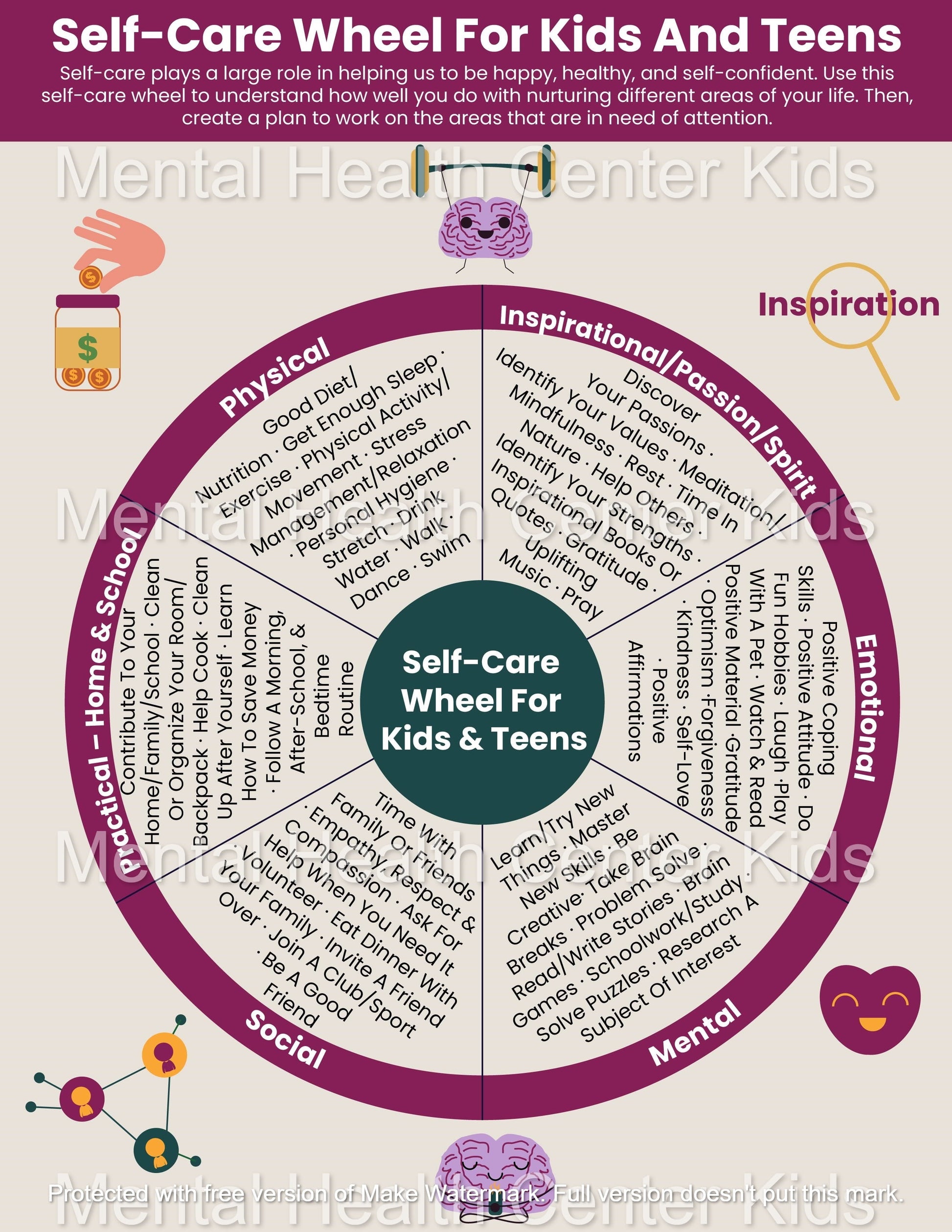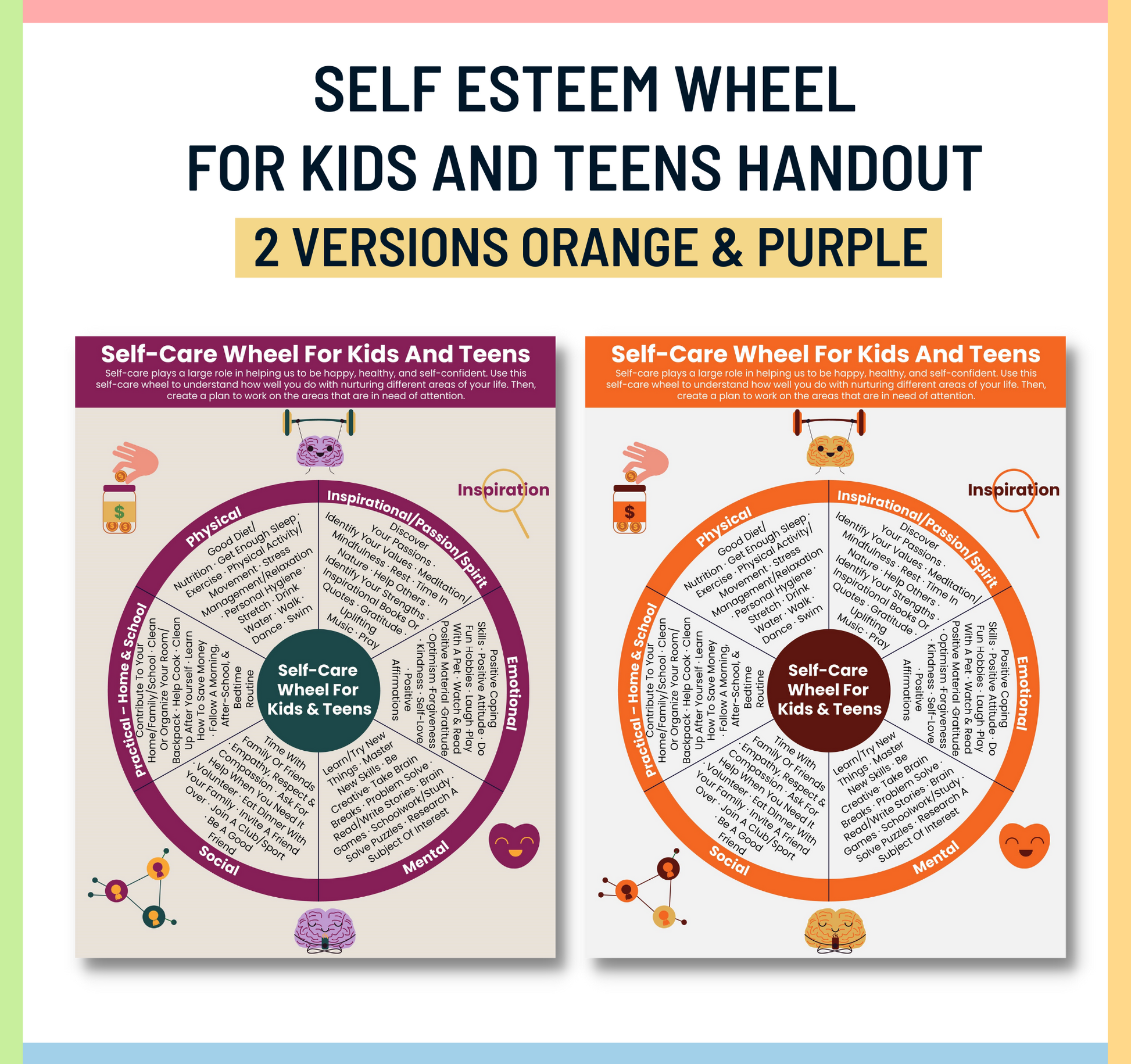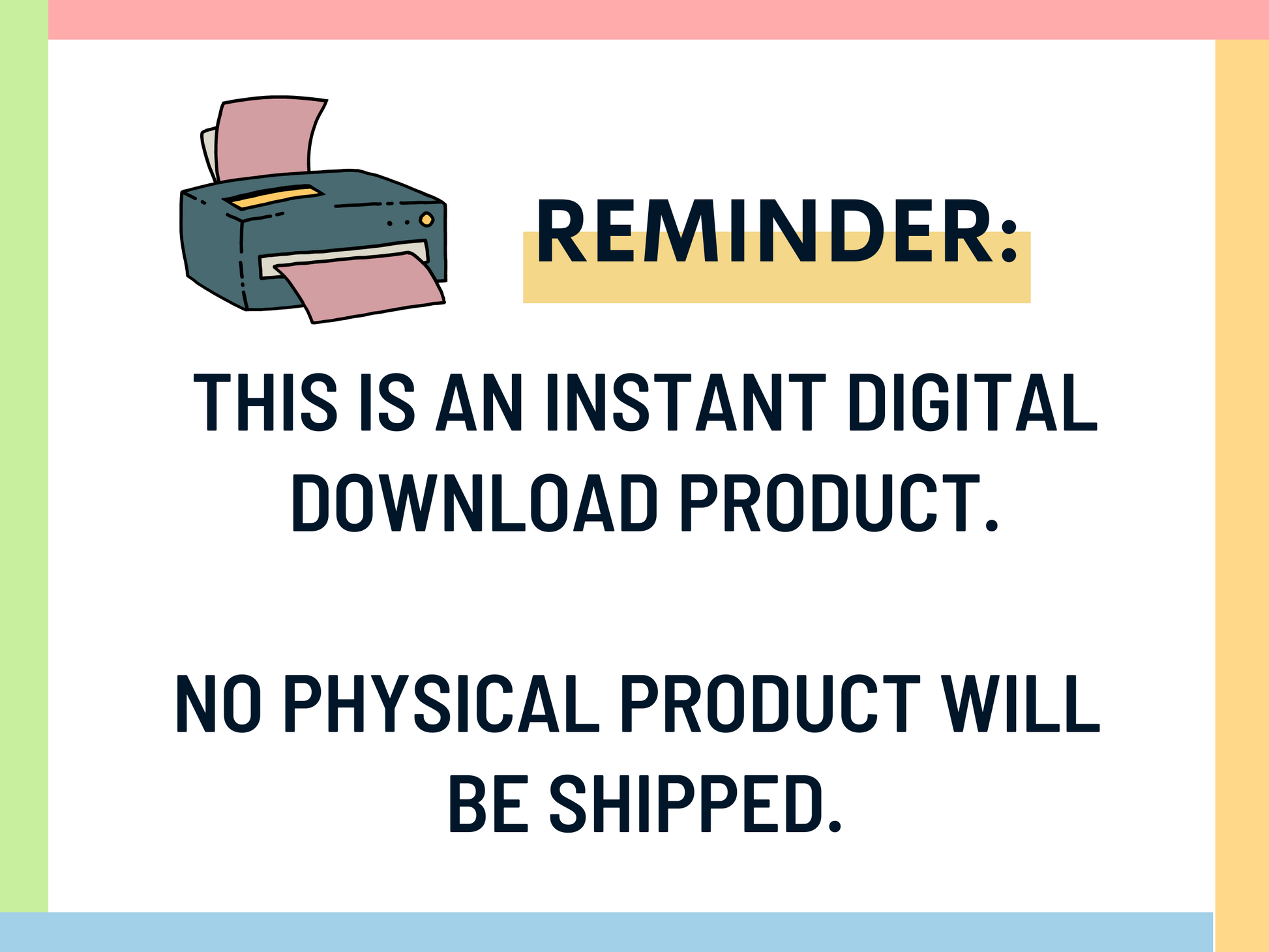Self-Care Wheel (PDF)
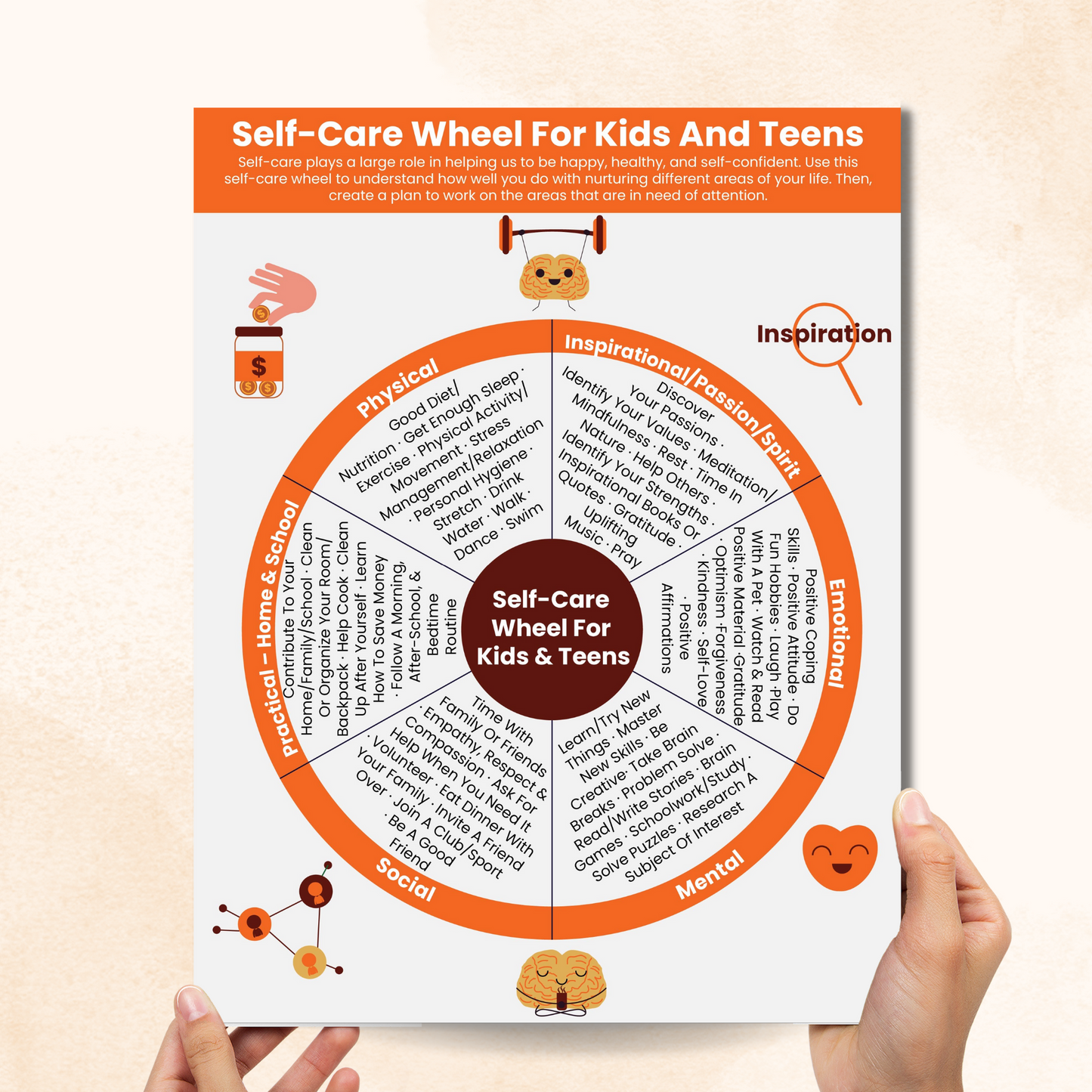
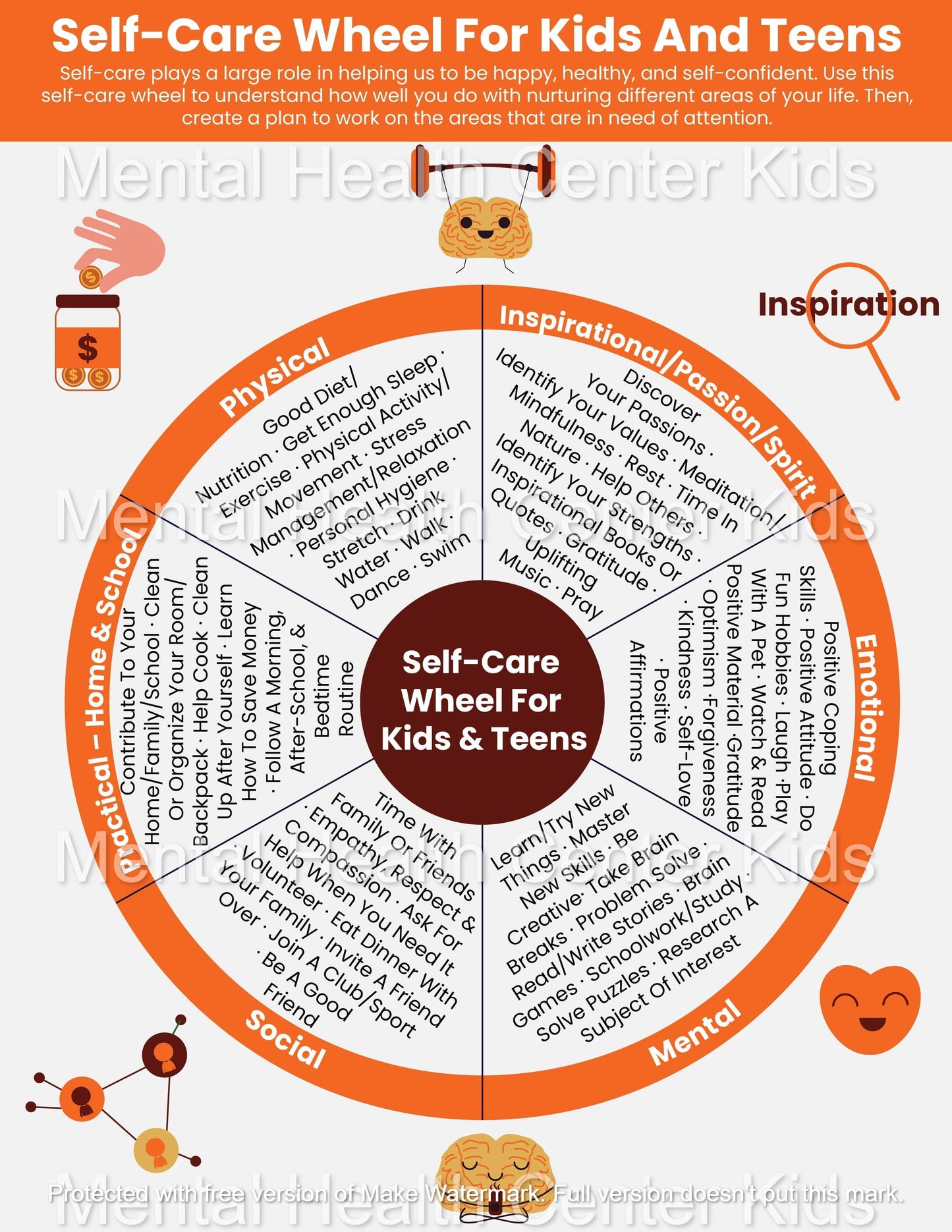
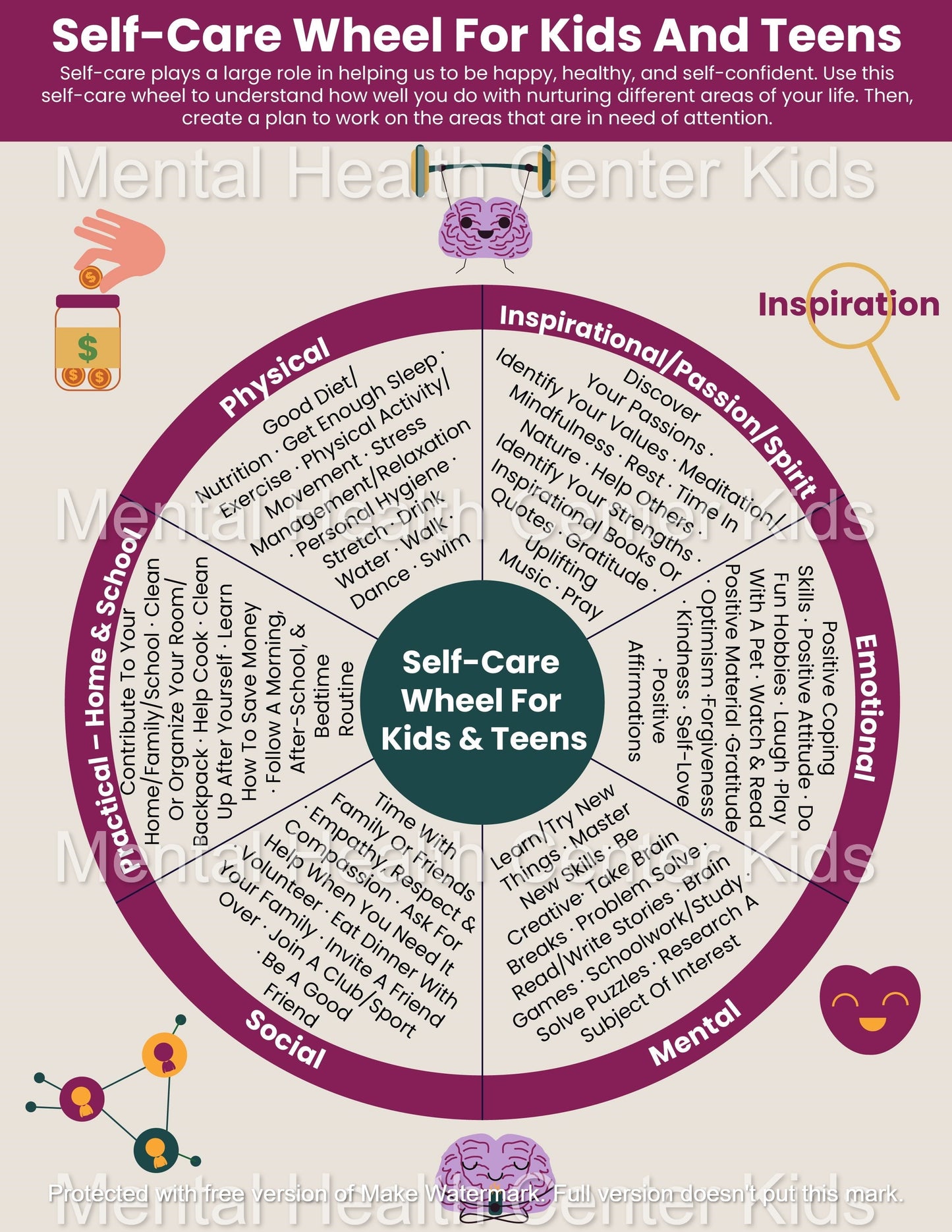
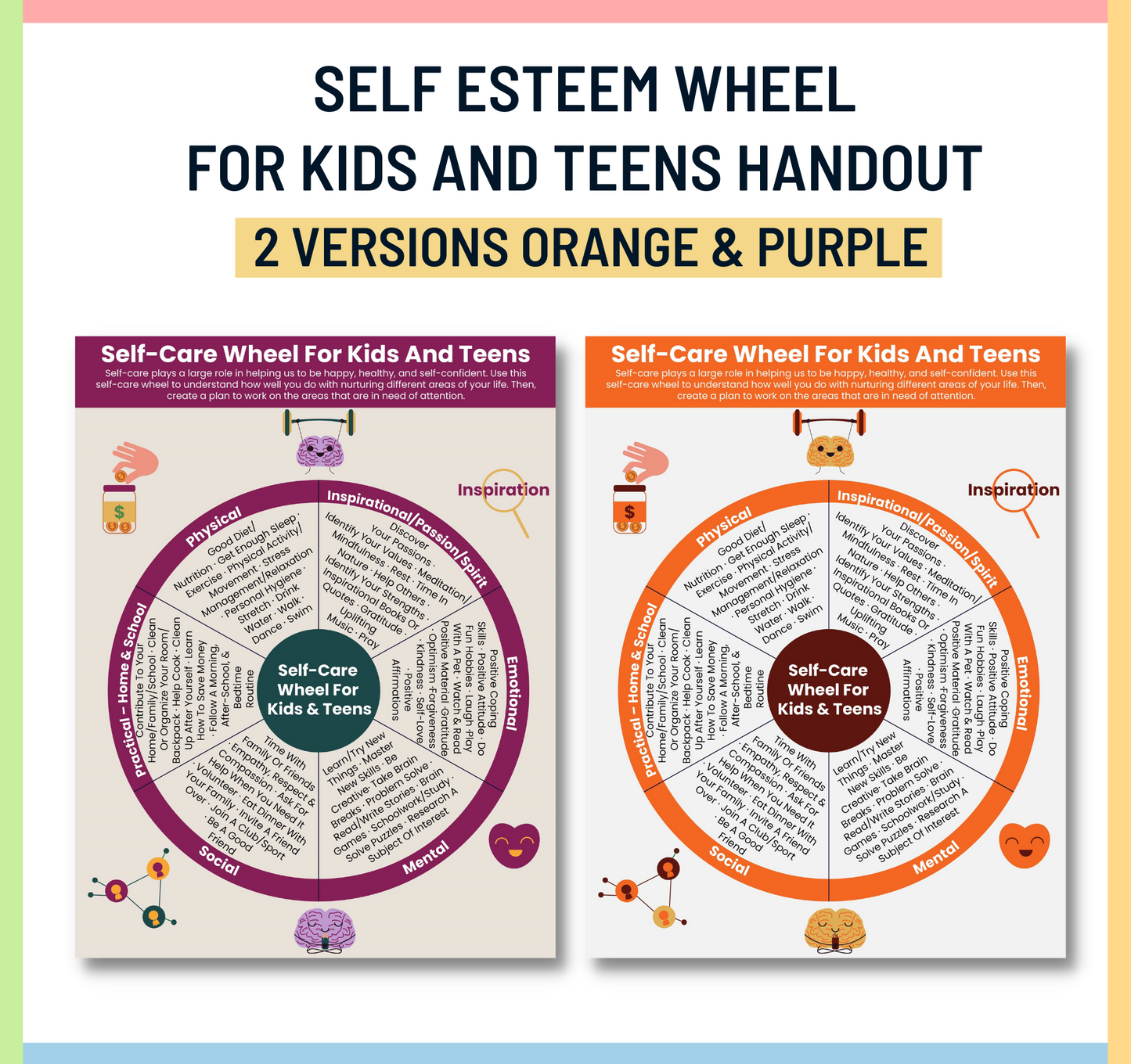
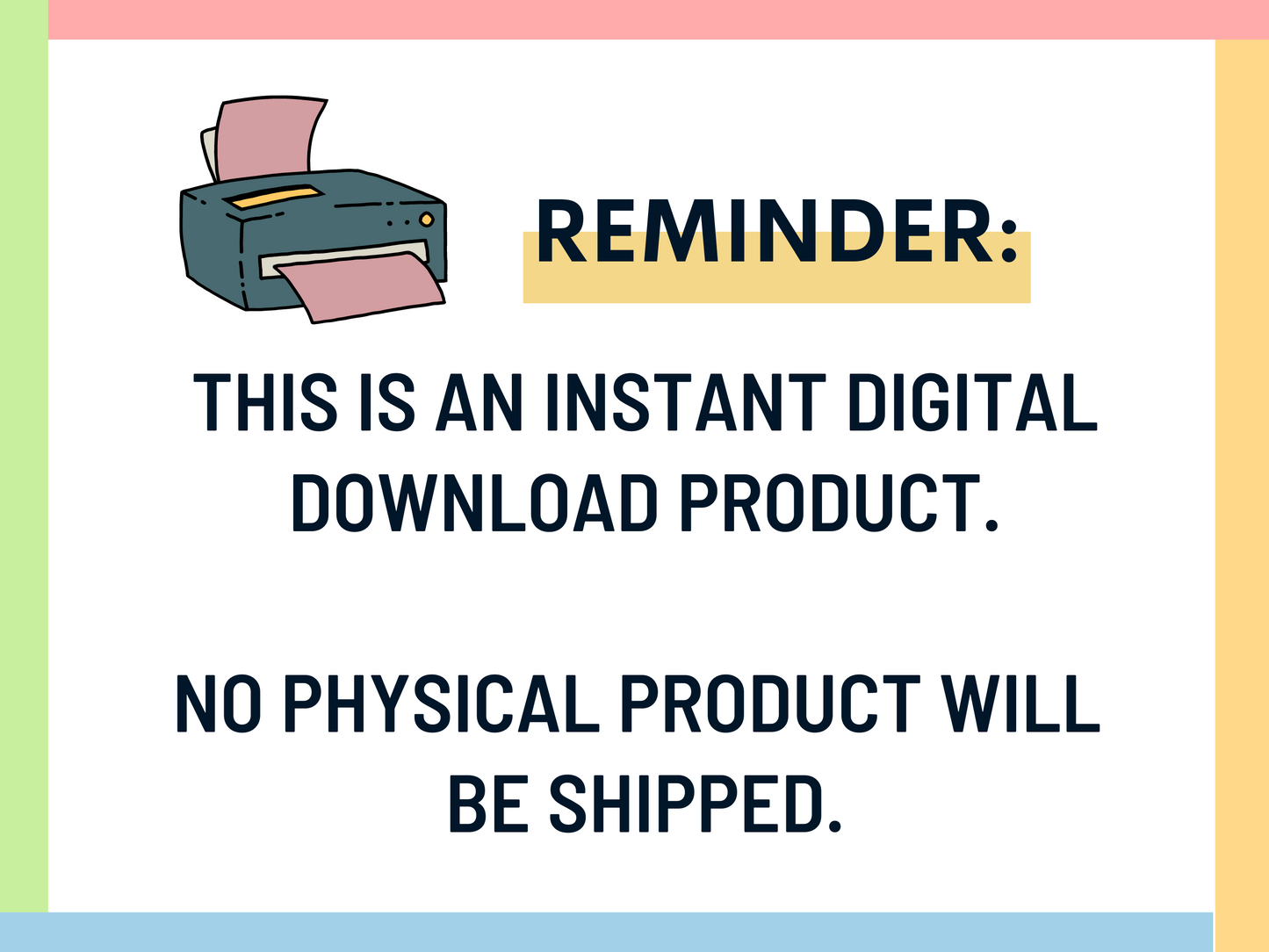
Self-care means taking care of your body, mind, and emotions to stay healthy and happy. It’s important for managing stress and feeling good, although it can be challenging to stay consistent. Moreover, some people, might not fully understand the benefits of taking care of themselves.
The Self-Care Wheel (PDF) breaks down self-care into six key areas: physical, mental, emotional, social, practical (home & school), and inspirational. It provides suggestions for improving self-care routines in each category. Examples include eating a balanced diet, getting enough sleep, and practicing forgiveness.
Using this tool regularly helps young people reflect on their current habits and take steps to improve their well-being through simple, meaningful self-care activities. You can encourage them to set aside a few minutes each day for a self-care activity they enjoy. Consistency in small, positive habits can lead to lasting improvements.
Caring adults can make self-care fun by organizing self-care challenges where kids earn points or rewards for completing tasks from the wheel.
This handout pairs nicely with our 9-page Self-Care Wheel for Kids And Teens worksheets.
*This item is an instant digital download. A link to download your files will be emailed to you once payment is confirmed.
Want more resources like this? Check out our full catalog of trauma worksheets and handouts.
References:
- Peckham, M. (2021). Self-care and grounding. Looking at Trauma, 13-20. https://doi.org/10.5325/j.ctv1wmz3qr.8
- Riegel, B., Barbaranelli, C., Stawnychy, M. A., Matus, A., & Hirschman, K. B. (2024). Does self-care improve coping or does coping improve self-care? A structural equation modeling study. Applied Nursing Research, 78, 151810. https://doi.org/10.1016/j.apnr.2024.151810
- Shannon, P. J., Simmelink-McCleary, J., Im, H., Becher, E., & Crook-Lyon, R. E. (2014). Developing self-care practices in a trauma treatment course. Journal of Social Work Education, 50(3), 440-453. https://doi.org/10.1080/10437797.2014.917932
- Truscott, A., Hayes, D., Bardsley, T., Choksi, D., & Edbrooke-Childs, J. (2023). Defining young people’s mental health self-care: A systematic review and Co-development approach. European Child & Adolescent Psychiatry, 33(11), 3765-3785. https://doi.org/10.1007/s00787-023-02320-7
- Instant digital download
- File: PDF
- Size: 8.5" x 11"
I found this self care wheel for children and teens a much needed resource for me to share with the Mentees that I Mentor. I will be sharing with the Mentees the importance of self care not just in the stage of life they are in now, but also in later years of their life.
Thank you for sharing the meaningful way you're using the Self-Care Wheel, Stella! Teaching self-care early really does set each of us up for lifelong wellness.
Self-Care Wheel (PDF)


